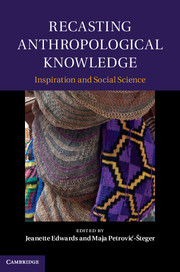Book contents
- Frontmatter
- Contents
- Contributors
- Acknowledgements
- 1 Introduction
- 2 Writing the parallax gap
- 3 Too big to fail
- 4 ???Hybrid custom??? and legal description in Papua New Guinea
- 5 Entomological extensions
- 6 Kinship and the core house
- 7 Invisible families
- 8 Knowledge in a critical mode
- 9 Spools, loops and traces
- 10 Inspiring Strathern
- Bibliography
- Index
6 - Kinship and the core house
contested ideas of family and place in a Ghanaian resettlement township
Published online by Cambridge University Press: 07 September 2011
- Frontmatter
- Contents
- Contributors
- Acknowledgements
- 1 Introduction
- 2 Writing the parallax gap
- 3 Too big to fail
- 4 ???Hybrid custom??? and legal description in Papua New Guinea
- 5 Entomological extensions
- 6 Kinship and the core house
- 7 Invisible families
- 8 Knowledge in a critical mode
- 9 Spools, loops and traces
- 10 Inspiring Strathern
- Bibliography
- Index
Summary
During the 1960s, over 80,000 people were resettled following the construction of the Akosombo dam in Ghana. The project created what, at the time, was the largest man-made lake in the world, a feat that was a source of considerable national pride. Although resettlement was seen by government officials and planners to entail ‘sacrifice’, relocation was presented as a positive step from ‘tradition’ to ‘modernity’. From this perspective the extended family was equated with ‘tradition’ and although the potentially integrative social function of such kin relationships was sometimes positively acknowledged, their weakening remained an explicit goal. Though often relatively small, resettlements were explicitly conceived as ‘towns’, a terminology that itself engendered the modernising aspirations of the project (Chambers 1970). In these purportedly more urban and cosmopolitan settings, planners, politicians and state officials hoped that the political and economic functions of kinship would diminish as people engaged in more diffuse relations on the basis of common nationality and citizenship. As Diaw and Schmidt-Kallert observe, ‘resettlement was to produce nationalists in an urban environment rather than myopic and inward-looking tribal communities’ (1990: 19). To this end, movement from the ‘traditional’ extended family system to the nuclear family system was an explicit goal of many of the planners and government officials involved (Obusu-Mensah 1980).
Focusing on one of these resettlement communities, this chapter examines how understandings of kinship, home and belonging have been reconfigured in response to forced migration and the aggregation of previously distinct groups that resettlement entailed. Whilst the persistence and continued centrality of kinship has been noted in these communities, this has tended to be regarded as a ‘hangover’ from the more ‘traditional’ forms of social life that characterised pre-settlement communities (e.g. Obusu-Mensah 1980; Diaw and Schmidt-Kallert 1990). Yet even to the extent that people in these communities themselves view kinship as a domain of ‘tradition’, the social significance and effects of these discourses cannot be reduced to any straightforward connection with the past. When kinship is taken to be explained by ‘tradition’, we fail to appreciate the different meanings, values and explanations that people attach to this term.
- Type
- Chapter
- Information
- Recasting Anthropological KnowledgeInspiration and Social Science, pp. 88 - 105Publisher: Cambridge University PressPrint publication year: 2011
- 1
- Cited by



